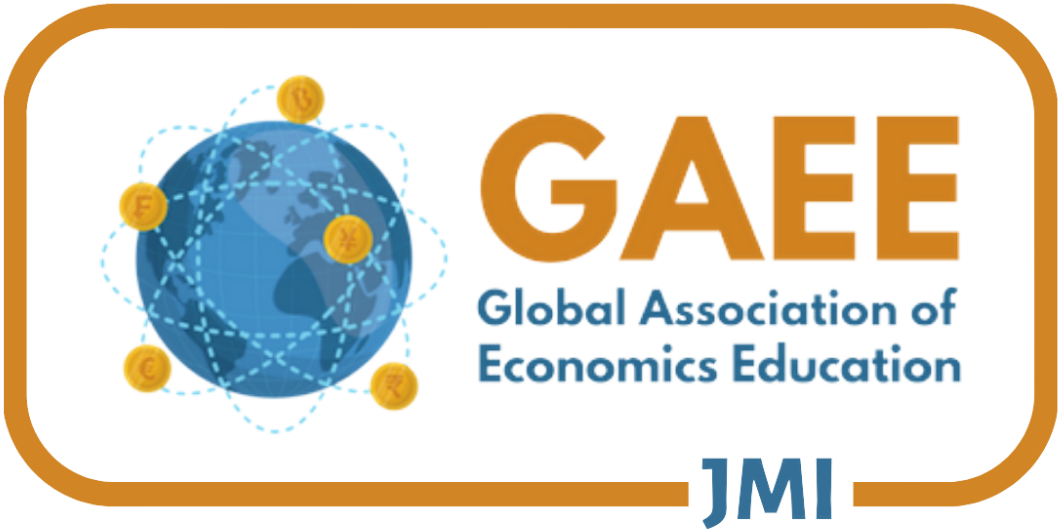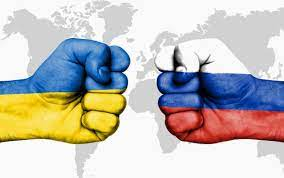Article by Shahzeb Khan from Economics Wing, GAEE JMI
Background:
that the only option for peace on the table had been relegated. The ongoing crisis has been a source of concern since 2014, and we are now seeing images of an all-out war that could have serious consequences for the global population.
As the global community works to recover from the damage inflicted by a severe pandemic, the localised or global conflict outbreak could be the proverbial “last nail in the coffin” for global economic recovery plans.
The emergence of economic models
Today’s economic models have emerged due to the adoption of globalization, greater economic cooperation and mutual interdependence among the various economies. Therefore, a conflict in any part of the world will manifest in disruptive forms, and the repercussions will be felt globally.
Theory of Conflict Prevention
In his book ‘The Lexus and the Olive Tree’ (1999), the famous American columnist (NYT) Thomas L. Friedman stated that “no two countries that both have a McDonald’s have ever fought a war against each other.”
Academics and foreign policy experts were quick to refute his claim, pointing to conflicts in Kosovo (1999), Georgia (2008), Crimea (2014), and, most recently, Nagorno-Karabakh (2020), in which the belligerents/opponents appeared to have more than enough McDonald’s outlets in their respective countries.
The idea was interpreted as ‘The Golden Arches Theory of Conflict Prevention,’ which was cited in his subsequent books ‘The World Is Flat’ and ‘Hot, Flat, and Crowded,’ both of which reiterated the idea. Friedman’s ideas may not be axioms, but they do shed light on the role of mutual trade between such warring parties and how it influences the state of affairs.
Impact of interdependence among economies
Any two countries that play prominent roles in global trade markets and supply chains are expected to behave rationally. Thus, they may refrain from engaging in a conflict that could be detrimental to their economic growth and prosperity. It is believed that trade interdependence has led to the current framework of the modern economy, in which cooperation across economic borders is a critical component of stability.
Various instances of isolation from the global trade market
In recent years, we have seen instances where financial objectives have been given a secondary role when juxtaposed/contrasted with greater territorial claims and geopolitical objectives. For example, China’s claim over Taiwan, Russia’s actions in Ukraine, and the Iranian and Venezuelan approaches to growth. These cases have deviated significantly from expected norms. Clearly, sanctions and other restrictions/impediments have isolated them from the global trade market as they seek alternative modes of trade.
Russia-Ukraine conflict
In the case of Russia and Ukraine, bilateral trade between the two countries has declined over time. According to studies, the trade balance between the two countries was around $49 billion in 2011 and was expected to fall to $9.3 billion by 2020.
Russia had been planning the construction of gas pipelines to Western Europe that would completely bypass Ukraine, depriving it of the Transit dues that it would have received. One example is the NordStream 2 Pipeline.
Similarly, Ukraine has reduced its reliance on Russian imports over the years. Both countries anticipated such a conflict and were thus decoupling from their economic dependence on each other. Hence, with such measures, war was only a matter of time before it erupted.
Russia is one of the world’s major economies, ranking 11th in GDP, while Ukraine ranks 57th. What’s more important for the market is that Russia has a much larger presence in the world’s energy markets. It is the second-largest producer of gas and the third-largest producer of crude oil. The sale of these products accounts for roughly one-third of its revenue.
In addition, it is also a significant exporter of wheat, timber, and other consumer goods. Similarly, Ukraine has been exporting agricultural products and machinery to other countries.
With the events unfolding in front of us, manufacturers scramble to mitigate the effects of delayed shipments from both air and sea—causing disruptions in global supply chains that were already under stress due to the pandemic.
Impact of the Russia-Ukraine conflict on the world economy
The pandemic threw the world economy off course, and the recent months have been spent attempting to achieve economic recovery. It is understood that no economy can grow without its energy sources, and the current conflict jeopardises the very concept of coordinated energy markets.
Crude oil barrels have surpassed the $100 mark as a result of the outcome. Countries that rely on Russia for energy are already feeling the pinch, with Europe leading the way. Energy scarcity threatens most countries, whether they are oil producers or importers because the effects spread to other sectors of the economy that rely on energy as an input.
A price shock has a negative impact on agriculture, manufacturing, and services because each requires fuel as a component. Therefore, energy scarcity impedes the growth of all sectors of the economy that rely on it, resulting in a domino effect of collapse.
The pandemic prompted a quick response from central banks and treasuries worldwide, which lowered interest rates and injected liquidity into markets to keep sluggish consumer demand alive. Concerns about inflation have crept into everyday conversation as we approach the end of the third year of the pandemic.
With the U.S Federal Reserve and the European Central Bank debating whether to raise interest rates in the coming months, several other developing economies are keeping a close eye on them. An oil price shock occurs when consumers are already dealing with inflation on multiple fronts.
The fallout of the conflict
This fallout has altered the way global trade has been regulated for the past three decades, ushering in a period of distrust, reduced cooperation, and volatile energy markets. The United States, the European Union, and their allies quickly imposed sanctions on Russia, effectively cutting it off from global markets. Major multinational corporations have ceased or suspended operations in Russia, and several Russian businesses, banks, and institutions have been cut off from the rest of the world.
Bottom line
Western powers have taken steps to freeze the foreign reserves held by Russian banks — limiting their ability to conduct trade. With all of these punitive measures, the major powers have stated unequivocally that Russia, like Venezuela, Iran, and North Korea, must be economically isolated in order to force compliance.
However, Russia’s expulsion is a different story—as it returns us to the bipolar world that existed during the Cold War. This would be a fatal blow to the globalisation process and may lead to De-Dollarisation as countries around the world seek to diversify their foreign exchange reserves.
All parties involved have already calculated the costs of following these paths. All sides have decided to put economic cooperation and mutual trade, the primary goals of the WTO, on hold for the time being. Lastly, the overall impact would be a changed world order and economic growth—hampered global trade. Therefore, the resulting fluctuations would leave people worldwide facing the threat of nuclear war.
Article Summary:
The article discusses the global economy’s post-pandemic setback and the impact a conflict or war might have on it today, highlighting the impact of globalisation on current economic models through the recent Ukraine-Russia crisis. The ramifications of this conflict will change how global trade has been regulated over the last three decades. Finally, it has been established that this conflict represents a changing world order, an era of distrust, reduced cooperation, and volatile energy markets, and we are returning to it.
Shahzeb Khan is a B.A.(Hons.) Economics student at Jamia Millia Islamia, Delhi, and a part GAEE JMI, an autonomous branch of Global Association of Economics Education in India. The views expressed are personal and they do not purport to reflect the opinions or views of GAEE or its members.
Follow Us & Stay Tuned: https://linktr.ee/gaee.jmi


Recent Comments